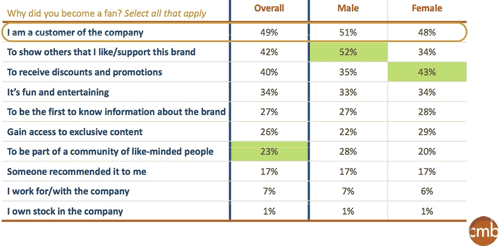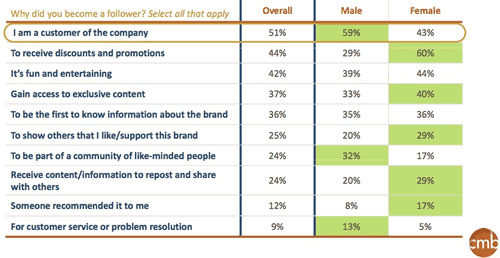One of the most sought after answers in Social Media is whether or not engagement in social networks such as Twitter or Facebook directly correlates to customer acquisition, retention, and advocacy. Before we can earn customers however, we have to recognize that at any given time, there are also prospects. And, prospects require information and confidence in order to make decisions, in your favor of course. The answer to our question lies in social engagement.
Prospects are not only searching for guidance, comparisons, and experiences through Google, they are also becoming increasingly social in every step of a decision making process. If brands do not identify the various stages of choice and resolution and also the networks where they socialize and explore, opportunities will be missed.
If we’re not part of the decision making cycle, we are absent from decisions.
From Fans and Followers to Customers
In order to connect with prospects online, we must do so where they’re already active. New research reveals that doing so may have a strong effect on the decisions and activity of your customers. In February 2010, market research firm Chadwick Martin Bailey along with iModerate Research Technologies, surveyed over 1,500 individuals online as well as conducted one-on-one discussions to contextualize social media behavior.
The study found that an astounding 60% of individuals who “like” pages dedicated to brands on Facebook are more likely to recommend the brand than those unaware of the company’s presence within the network. Perhaps even more incredible, is that 79% of consumers who follow the brand on Twitter have stated that they too, would refer peers to those companies they follow.
Since actions speak louder than words, the study sought to answer the question of whether or not engagement actually leads to purchases. The answer is yes. An impressive 51% of Facebook fans and 67% of Twitter followers indicated that they are more likely to buy since connecting online. With 450 million users on Facebook and over 100 million registered users on Twitter, the potential is not only great, it’s exponential.

Social Media is a Tool for Customers and Prospects
What compels someone to fan a page on Facebook or follow a company on Twitter? The survey specifically asked the question of its panelists in relation to Facebook and Twitter and their answers may be surprising to many.
On Facebook, existing customers topped the list with 49%. Following with 42%, consumers felt compelled to show support for the brand. In third with 40%, individuals admitted that they hoped to receive discounts and promotions.
Other stats worth mentioning, 27% and 26% of respondents stated that they would like to be among the first to know information about the brand and also to gain access to exclusive content respectively. And, 17% claimed that they were referred to the page by someone that they knew, which already demonstrates word of mouth at work.

Twitter paints a different picture, but more so than in Facebook, consumers want access.
51% of consumers polled are already customers of the company. 44% stated that receiving discounts and promotions was the primary reason for following. 42% did so for entertainment purposes.
Gaining access to exclusive content and learning about information first with 37% and 36% respectively is also worth noting.
Whereas 17% were referred to Facebook pages, only 12% followed brands on a recommendation. However, as the number two reason for following reveals, Twitter users are ready to make a purchase based on information gleaned from their stream.

Engage or Die
Creating a presence in social networks is mandatory, but it’s also not enough. Actively and thoughtfully engaging consumers in social networks is quickly becoming an expectation. As part of the study, consumers voiced their opinions and sentiment, some of which serves as a wake-up call to businesses everywhere:
“It’s EXPECTED that a company have some digital face – whether it’s on FB or Twitter I don’t know – but they need a strong electronic presence or you doubt their relevance in today’s marketplace.” Female 50-54
“Either they are not interested in the demographic that frequents Facebook and Twitter or they are unaware of the opportunity to get more exposure in a more interactive method.” Male 35-39
“It shows they are not really with it or in tune with the new ways to communicate with customers.” Female 18-24.
“If they’re not on Facebook or Twitter, then they aren’t in touch with the ‘electronic’ people.” Female 55-59
It’s clear. Those brands that focus on prospects and customers through social engagement will open new doors that increase brand awareness and sales through word of mouth. But perhaps more importantly, businesses will also earn expanded relevance in the age of a new and powerful medium.
Have you had a chance to read, Engage!…?
Originally posted on Briansolis.com
This post has been moved from i-SCOOP’s Social Marketing Forum as part of an integration.

